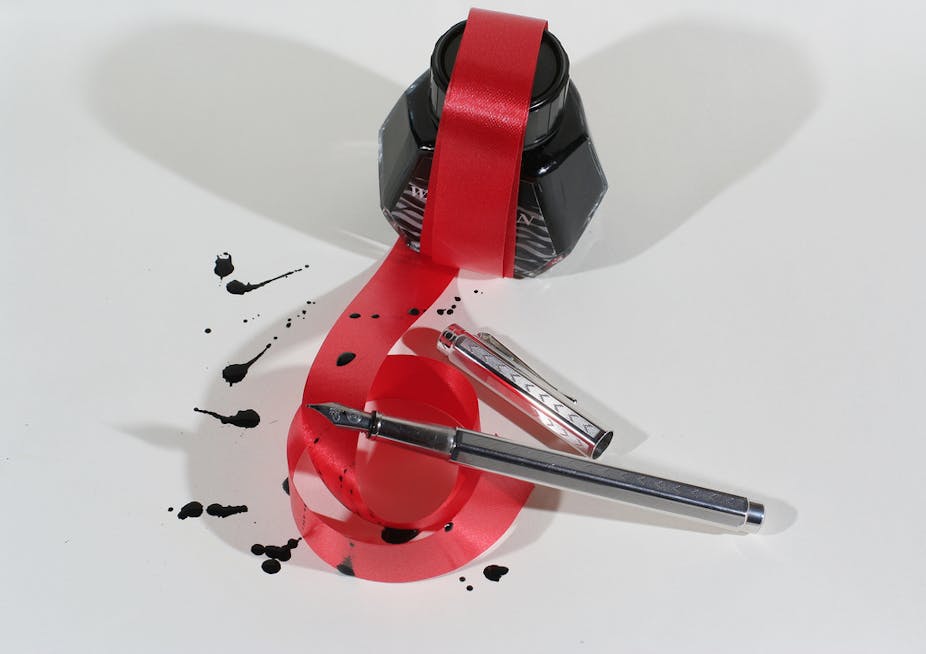The idea that universities should return to their “core business” of teaching and research has become a favourite mantra of vice chancellors. It is reinforced by increasing evaluations imposed by Canberra to determine funding models.
Indeed, academics now spend more and more time answering questionnaires imposed by the federal government. A government who seems unconcerned with how its obsession for monitoring might detract from what it tells us we should be doing.
But universities also play a number of crucial roles in the intellectual, cultural and political life of the country.
Whatever the limits of the term “public intellectual” — which seems to suggest people who speak out on every topic bar those where they have expertise — it is an obligation of universities to provide the opportunity for its staff to engage in public debate and challenge received wisdom.
Doing this might be understood as part of “scholarship” in its fullest meaning, a term that seems to have disappeared in the emphasis on “research”, usually understood by politicians to mean developing a new technique immediately applicable in industry or medicine.
Keeping academics under wraps
It is a great irony that it was a Labor government who removed “impact” from its Excellence in Research and Ranking (ERA) exercise. This privileged the kind of traditional academic publishing which is particularly accessible to certain sorts of disciplines.
The same government that wants to increase participation in higher education from those with low socioeconomic status is simultaneously demanding a time-consuming and old fashioned exercise in research evaluation that works against innovation in scholarship and certainly against enhancing public debate.
Most of us would be delighted were we able to publish a long review article in the New York Review of Books, as only very few Australian academics — Tim Flannery and Peter Singer come to mind — have succeeded in doing. Yet such an article would count less in the ERA exercise than a piece in a “refereed journal” which might be read by three people, namely the editor and the two reviewers.
My junior colleagues lament the fact that the system discourages them from writing for a broader audience than academic specialists.
Thankless tasks

Over the past few months I have been engaged in a range of projects that I would argue contribute towards intellectual and public life. None of them is easily recorded in the evaluations we are required to make to Canberra.
At the risk of sounding overly self-promoting let me list some of these.
My first book Homosexual: Oppression & Liberation was republished. A major conference and several public events took place in conjunction with this anniversary. This will certainly lead to a number of publications, but the sole recognition I can claim as a “researcher” is the short new introduction I wrote for the current edition.
Second, I am currently spending a lot of time helping develop the program of the International AIDS Conference in Washington this year. These conferences are so important that the federal and Victorian governments have already pledged $2.5 million to ensure the 2014 Conference will take place in Melbourne. They have allowed me to help develop connections between biomedical and social researchers. But how does one report on this in an ERA framework?
Third, I co-chair a network of academics and development NGOs who are trying to expand the connections between development scholars and development NGOs. We have now held three successful conferences, and AusAID is likely to fund a position to further develop the network. As development studies is, sorry for the pun, under-developed in Australia, and as Australia is set to become one of the more substantial donors on international assistance, this is important for both academic and political reasons.
Second fiddle to hacks and jokers
In the time these three activities have taken, I could have probably written quite a few articles for peer-reviewed journals and applied for several grants.
As someone who is about to retire, and also with the blessings of a supportive Deputy Vice Chancellor, Dean and school, it is possible for me to spend time on these sort of activities. But for emerging academics there will be less freedom to do these sort of activities, and as a result universities will seem increasingly irrelevant to public life.

Already even the serious media rarely turns to universities for expertise. Programs like Q&A seem to prefer comedians and political hacks to academics. I say this as someone who has been on the program and cannot, therefore, be accused of sour grapes.
Losing our best minds
Last year I wrote a letter to then Science Minister Kim Carr. I suggested we could save literally tens of thousands of hours and dollars for both government and universities by radically simplifying the process of applying for ARC and NHMRC grants.
The amount of detail required is currently absurd: with a 20% chance of success one is now required to provide details as minute as the cost of a tape recorder for a potential research trip five years in the future.
If these details only required once a grant was awarded, academics would suddenly have more time to create the track record they need to actually win a grant.
It is an awful irony that we all spend increasing amounts of time responding to monitoring and evaluation, as Canberra simultaneously insists that Universities become less dependent on government funding.
Alan Ginsberg wrote that he had seen the best minds of his generation destroyed by madness. We are seeing the best minds in our universities destroyed by increasingly complex form filling.
This is a summary of a speech given at an NTEU Conference where Professor Altman was asked to speak about the role of “public intellectuals” in universities.

